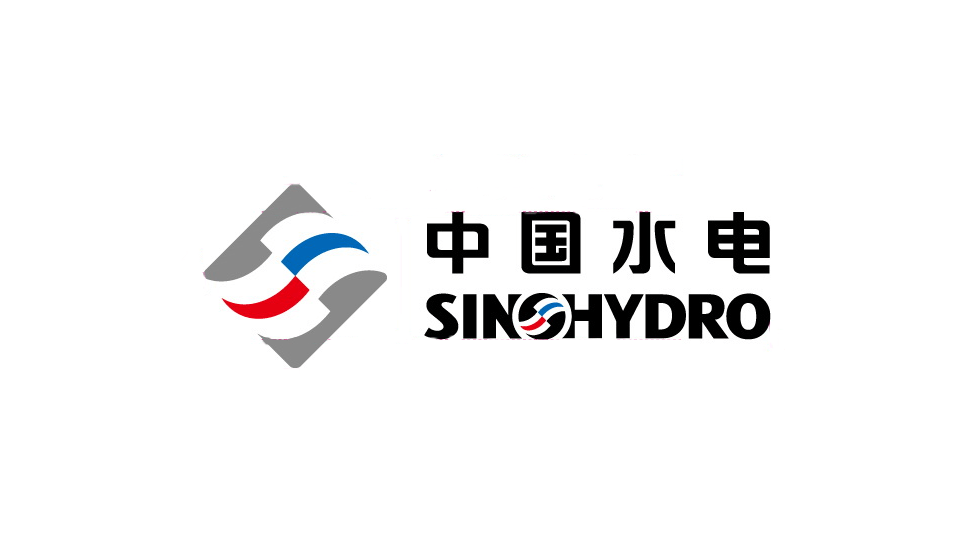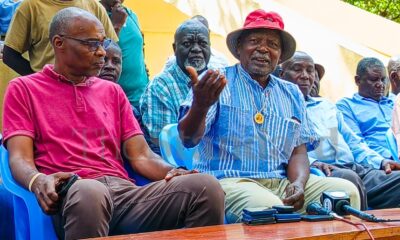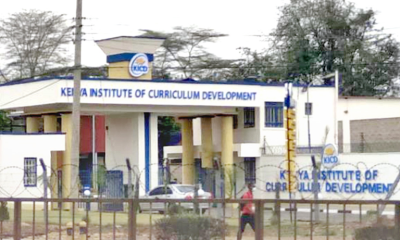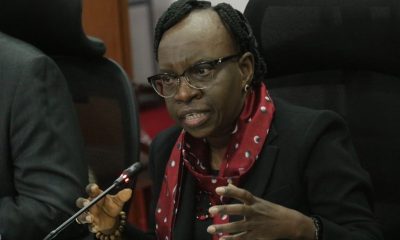Investigations
Kenya Bleeds Sh285 Million as Chinese Firm Profits from Delays

Kenya’s taxpayers are footing the bill for a stalled irrigation project while a Chinese firm cashes in on delays.
In a damning audit, the government paid Sh214.8 million in “idle time” and another Sh70 million in interest—all to Sino Hydro Company Limited, the contractor behind the Lower Nzoia Irrigation Project.
As communities wait for promised farming support, the project’s costs spiral and deadlines shift.
The government blames delayed World Bank funds, but behind the excuses lies a troubling pattern of poor planning, mismanagement, and a Chinese firm profiting from government inefficiency.

Despite spending billions, farmers in Lower Nzoia are yet to receive the irrigation services that were meant to boost food production and economic resilience in the region. [Photo: Courtesy]
Chinese Firm Paid Sh285 Million for Doing Nothing as Kenyan Taxpayers Foot the Bill
Kenya paid a Chinese firm a staggering Sh285 million in the 2023/2024 financial year—yet not for work done, but for doing nothing.
The Auditor-General’s latest report reveals that Sino Hydro Company Limited received Sh214.8 million for “idle time” and Sh70 million in interest due to government delays in releasing project funds.
Idle time refers to the period when contractors cannot work because of delays caused by the hiring party—in this case, the Kenyan government. Essentially, taxpayers paid the Chinese firm for keeping its machines and workers on standby.
Taxpayers Suffer While Promised Irrigation Project Stalls
The Lower Nzoia Irrigation Project, which straddles Siaya and Busia counties, was launched in June 2018. It aimed to provide irrigation and drainage to 12,600 farmers over 10,000 acres.
Initially, the project was set to end in June 2021. However, it has now been extended to May 2025 due to repeated delays.
Auditor-General Nancy Gathungu flagged the government’s failure to disburse funds on time as the main cause of this financial wastage.
She noted that delays in counterpart funding from the government and insufficient World Bank financing had directly contributed to the problem.
In her report, she wrote:
“The government has gone at a loss of Sh70,072,392 through payment of interest to the contractor resulting to increased project costs and the value for money may not be realised.”
By June 2024, total losses linked to these delays had reached Sh494.2 million. While money leaks through interest and idle time charges, the intended beneficiaries—local farmers—remain in limbo.
Where Did the Money Go?
During the 2023/2024 financial year, the project was allocated Sh3.35 billion. However, only Sh1.47 billion was spent—just 53% of the planned amount. The National Irrigation Authority blamed the underspending on the slow release of funds by the government.
Of the Sh1.39 billion actually spent, only Sh697 million went to construction and civil works. Shockingly, Sh285 million—nearly 41% of that budget—was swallowed by idle time and interest payments to the Chinese firm.
This raises serious questions about project management and accountability.
Delays Trigger Further Costs
The situation worsened because of delayed land acquisition. A letter from project management dated December 5, 2023, revealed that the National Land Commission had not acquired necessary land in time. This resulted in claims from the contractor for both cost escalations and time extensions.
The knock-on effect: taxpayers are punished twice—once for the cost of delays and again through stalled benefits.
Despite spending billions, farmers in Lower Nzoia are yet to receive the irrigation services that were meant to boost food production and economic resilience in the region.
Mismanagement or System Failure?
The government’s explanation blames external financing delays. But that excuse has worn thin. With four years of missed deadlines and rising costs, the pattern points to systemic inefficiencies in project oversight and financial planning.
Why is a foreign contractor being paid millions for inactivity while Kenyan farmers wait for relief? Why has land acquisition not been prioritized, despite being a known requirement from the start?
Time to Demand Accountability
The Lower Nzoia case is not an isolated incident. It mirrors a wider issue in Kenya’s public projects: poor planning, delayed execution, and rising costs—often to the benefit of foreign contractors like the Chinese firm in question.
The Auditor-General’s report is clear: nearly half a billion shillings has been lost due to project delays. If Kenya hopes to make development projects count, it must start holding officials and contractors accountable—not rewarding them for failure.
Kenya Insights allows guest blogging, if you want to be published on Kenya’s most authoritative and accurate blog, have an expose, news TIPS, story angles, human interest stories, drop us an email on [email protected] or via Telegram
-

 Business2 weeks ago
Business2 weeks agobetPawa Empire Crumbles: Mr Eazi’s Betting Gambit Unravels Amid Partner’s Shadowy Deals
-

 Business1 week ago
Business1 week agoMinnesota Fraud, Rice Saga, Medical Equipment Deal: Why BBS Mall Owner Abdiweli Hassan is Becoming The Face of Controversial Somali Businessman in Nairobi
-

 News1 week ago
News1 week agoDCI Probes Meridian Equator Hospital After Botched Procedure That Killed a Lawyer
-

 Business1 day ago
Business1 day agoCooking Fuel Firm Koko Collapses After Govt Blocks Sh23bn Carbon Deal
-

 Politics1 week ago
Politics1 week agoYour Excellency! How Ida’s New Job Title From Ruto’s Envoy Job Is Likely to Impact Luo Politics Post Raila
-

 Investigations2 weeks ago
Investigations2 weeks agoEXPOSED: SHA Officials Approve Higher Payments for Family, Friends as Poor Patients Pay Out of Pocket
-

 News1 week ago
News1 week agoKenya Stares At Health Catastrophe As US Abandons WHO, Threatens Billions In Disease Fighting Programmes
-

 Politics2 weeks ago
Politics2 weeks agoJaramogi Clan Tells Raila Jr, Winnie Against Disrespecting Their Uncle Oburu, Warns of Curses























